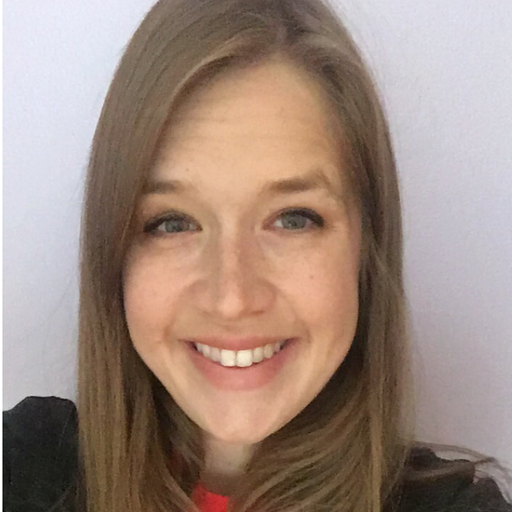Nurse Types / Nurse Practitioner / Job Prospects
Nursing has changed tremendously in the last few years. Many nursing professionals are reconsidering their futures. Perhaps you’re thinking of furthering your career with a Nurse Practitioner (NP) degree. Or you might be an NP wanting a new job. Either way, it’s essential to look at the job prospects.
We’ve got good news! There is no better time to be a Nurse Practitioner. Job prospects are HOT. The demand for Registered Nurses with advanced practice degrees is growing. In this post, we look at the job prospects, how to become an NP, and roles these professionals commonly fill. This guide will give you confidence to know if now’s the time to pursue a new job as an NP.
Let’s get to it!
- Increased demand for Nurse Practitioners
- Job prospects for Nurse Practitioners
- How to become a Nurse Practitioner
- Difference between Nurse Practitioners and doctors
Increased demand for Nurse Practitioners
The field of Nurse Practitioners in the US is growing. Here are a few reasons for the increased demand for NPs.
- The US is facing a growing shortage of physicians.
- Retailers and grocery stores are adding healthcare clinics to their stores.
- Healthcare legislation continues to widen the NP’s scope of practice.
- The US population is aging quickly.
- A growing emphasis on preventative care generates a continuous need for primary, secondary, and tertiary care for injuries and illnesses.
Experts estimate that by 2040, the group of Americans over age 65 will double, and those over 85 will quadruple. Many worry the supply of healthcare providers won’t keep up with the demand.
It doesn’t look like these issues will change anytime soon. So if you are thinking about becoming an NP, now is the time.
Job prospects for Nurse Practitioners
Certified Nurse Practitioners have considerable job prospects in today’s market. Opportunities abound! According to the US Department of Labor, most NPs work in physician’s offices. Other settings where NPs work include hospitals, outpatient clinics, and home health agencies.
Advanced degrees prepare NPs to take their careers as far as they wish to go, in any number of directions.
Salary
In addition to giving nurses more job options, a Nurse Practitioner certification increases a nurse’s earning potential. The average salary for an NP in the United States is $118,040. This compares to an average RN salary of $82,750. You can also check out NP salaries by state.
Job Outlook
Nurse Practitioners also have job security because the need is growing. The most current data from the US Department of Labor suggests the job outlook for NPs will increase by 40% from 2021 to 2031.
In some states, Nurse Practitioner jobs are increasing faster than in others.
For instance, Arizona is expected to see job growth for NPs greater than 51%. Two significant factors contribute to this job market. There is a physician shortage and much of the state lives in rural areas with limited healthcare access. Hospitals and clinics are increasing access to healthcare using non-physician practitioners.
The state expecting the least growth is Mississippi. Even here, the job market is expected to grow by 7.14%. The state has many residents with complex chronic health problems in outlying and rural areas.
No matter what state you plan to practice in, you can count on a growing demand for NPs over the next decade.
Get job matches in your area + answers to all your nursing career questions

How to become a Nurse Practitioner
If the increasing demand, better pay, and greater opportunities have convinced you to explore a Nurse Practitioner program, here’s what you need to know about becoming an NP.
An NP must be a licensed Registered Nurse (RN) and earn a master’s degree or higher in advanced nursing practice to become an NP. Here is a path that nurses commonly follow.
- Become a Registered Nurse (RN)
You must graduate from an accredited nursing school with a Bachelor of Science in Nursing (BSN). This requires 36-48 months of school. Then you must pass the NCLEX-RN exam in order to practice as a nurse.
- Gain experience
Next, you’ll need work experience as a nurse. Most NP programs require one to two years of practice as a Registered Nurse for admission. Use this time to find the specialty you are passionate about and want to pursue.
- Earn an MSN or DNP degree
Choose the area you want to specialize in and enroll in a master’s or doctorate program. The MSN programs typically require two years of coursework and 500 clinical practice hours with a preceptor. A DNP program may take 3-4 years and 1000 practice hours.
- Pass the specialty certification exam
After you graduate with an advanced nursing degree, it’s time to take the NP certification test. There are currently two recognized certification boards, each offering different specialty exams and credentials.
- American Nurses Credentialing Center (ANCC) certifies NPs in Family Practice, Gerontology, and Psych-Mental Health Care
- American Academy of Nurse Practitioners Certification Board (AANPCB) certifies NPs in Family, Gerontology, and Emergency Care
5. Obtain state licensure
When you pass the certification exam, you can apply for the NP license in your practice state. Licensing requirements vary by state, so it is important to check with your board of nursing for information.
NURSE TIP

Some examples of Nurse Practitioner jobs
A Nurse Practitioner is an advanced practice nurse who provides patient care, including diagnosis, treatments, and consultations. They may perform physicals, order tests, and serve as primary healthcare providers.
Nurses with advanced practice degrees are extremely knowledgeable and skilled. NPs are more advanced than RNs. In most states,they have the authority to practice autonomously and can prescribe medications.
A few of the different roles available for advanced practice specialization include:
- Adult Nurse Practitioner
- Pediatric Nurse Practitioner
- Family Nurse Practitioner
- Cardiac Nurse Practitioner
Some NPs change specialties during their careers. Meanwhile, others choose a dual specialty. For example, an NP could hold a full-time job in an Emergency Room while working part-time in a mental health setting.
Difference between Nurse Practitioners and doctors
Nursing programs and medical programs are different. Nurse Practitioners and doctors have different training and distinct practice philosophies. These two roles also differ in the principal focus of patient care.
Nursing care from an NP tends to be more holistic and considers treating the patient. In comparison, medical care from a doctor may focus on treating the condition affecting the patient.
Next steps
If you’ve been waiting for a sign to explore your options for a Nurse Practitioner degree in your specialty field, consider this to be it. To move forward in your career as a prospective NP student, learn more about MSN programs, and start checking out schools in your area.
If you’re already a Nurse Practitioner and you’re looking for your next job, browse NP jobs near you on our job board!
Now’s the time to take the next step. Let us help you!
Top advanced practice jobs on Incredible Health
Clinical Nurse Specialist
Whittier, CA | $71,000 to $141,000 /year
Nurse Practitioner
Tyler, TX | $86,000 to $120,000 /year
Nurse Practitioner
Harrisburg, PA | $64,000 to $145,000 /year
Nurse Practitioner
Houston, TX | $70,000 to $120,000 /year
Nurse Practitioner
Austin, TX | $86,000 to $120,000 /year
Get job matches in your area + answers to all your nursing career questions

Sources
- “Arizona Employment Trends”. onetonline.org. Accessed May 23, 2022.
- “Mississippi Employment Trends”. onetonline.org. Accessed May 23, 2022.
- “NP Fact Sheet”. aanp.org. Accessed May 18, 2022.
- “Nurse Anesthetists, Nurse Midwives, and Nurse Practitioners”. bls.gov. Accessed May 18, 2022.
- “Nurse Practitioner Job Description, Duties and Responsibilities”. bestaccreditedcolleges.org. Accessed May 18, 2022.
- “Occupational Employment and Wage Statistics”. bls.gov. Accessed May 18, 2022.
- “The US Population Is Aging”. urban.org. Accessed May 18, 2022.
- Photo by humberto chavez on Unsplash
